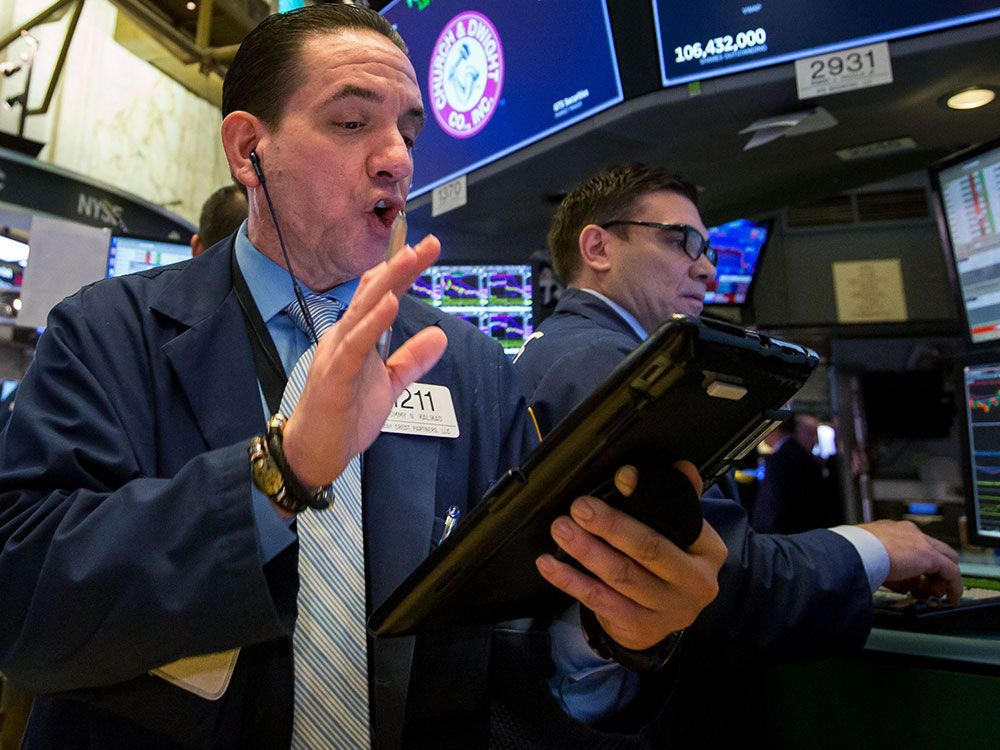
Article content
Bond yields and stocks tumbled while gold soared after the White House said there were indications Iran is preparing to attack Israel.
The Nasdaq 100 plunged by more than 1 per cent while the S&P 500 fell around 0.9 per cent. Treasuries across the curve fell by as much as 7 basis points. The two-year dropped to 3.6 per cent.
The United States is actively supporting preparations to defend Israel against the possible attack, which would carry severe consequences for Iran, according to a White House official, who asked not to be identified.
Article content
Meanwhile, oil prices spiked as the risks of a wider conflict in the Middle East grew. Israel said it had begun “targeted ground raids” in Lebanon. Gold climbed to around US$2,670 an ounce while a gauge of the dollar strengthened.
Tuesday kicks off a historically positive, though often volatile, period for equities. The S&P 500 set its 43rd closing record on Monday notching a third-quarter rally that capped the longest such winning stretch since 2021.
Article content
“October has been a much friendlier month to bulls from start to finish, but in between it hasn’t been a walk in the park,” according to Bespoke Investment Group strategists. It’s average intra-month peak-to-trough decline of around 4.6 per cent is the largest of any month, according to Bespoke data going back to 1945.
Money markets imply a one-in-three chance the Federal Reserve will deliver another half-point cut in November, and price a total of about 190 basis points of easing by the end of next year. That scenario may not pan out as expected, Larry Fink warned.
“The amount of easing that’s in the forward curve is crazy,” Fink, the chief executive of BlackRock Inc. said in an interview with Bloomberg TV. “There’s room for easing more, but not as much as the forward curve would indicate.”
Euro-area inflation slowed below the European Central Bank’s 2 per cent target for the first time since 2021, prompting money markets to add to bets on another quarter-point decrease by the ECB this month. Earlier, ECB President Christine Lagarde said the bank is becoming more optimistic about getting price pressures under control.
— With assistance from Allegra Catelli, Alice Atkins, Cecile Gutscher and Margaryta Kirakosian.
Share this article in your social network